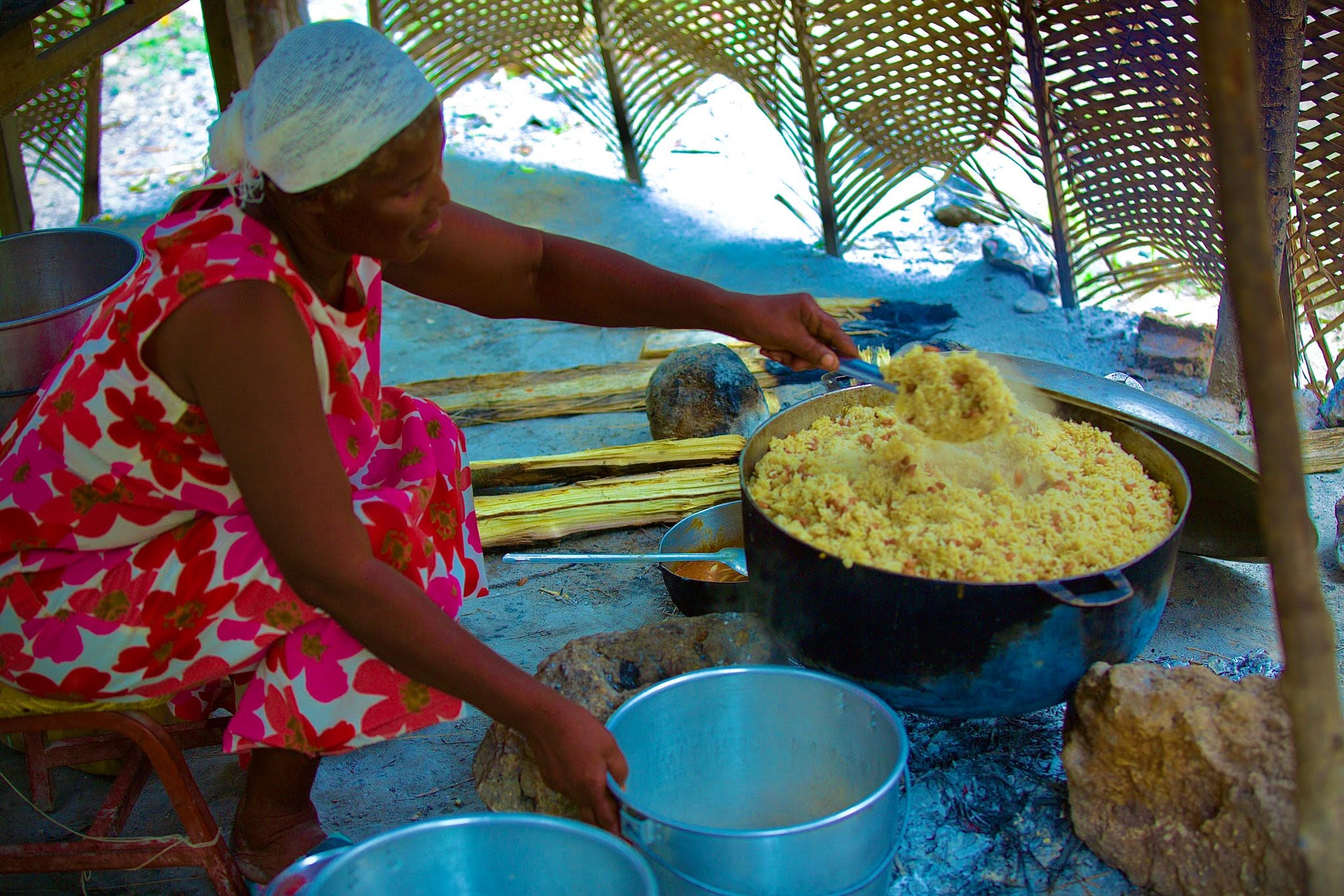Haiti - a dangerous place to be a child
As Haiti faces escalating gang-related violence, school closures, and food insecurity, Summits Education and Mary’s Meals are fighting to keep school feeding programs running in one of the world’s most dangerous places.
In the early morning of 7 July 2021, gunmen assassinated Jovenel Moïse, the former president of Haiti. A state of emergency was declared and over the months that followed the security situation across the country started to deteriorate.
Four and a half years on, escalating gang violence, political instability, rising poverty, and humanitarian collapse continue to affect our people. At least 85% of Port-au-Prince, the capital of Haiti, is controlled by gang factions and organized crime groups, which have started to operate in other regions of the country, including areas where Summits Education – where I serve as Deputy Director – delivers the school feeding program in partnership with Mary’s Meals.
Over 1,000 schools remain closed across the country, many children are not able to access education on a daily basis, more than 1.4 million people have been internally displaced and half the population is experiencing acute food insecurity.
Gang violence is disrupting school feeding
The past year has tested us like never before. We have been facing rising gang activity, blocked roads, inflation, and crumbling supply chains. On some days, fuel was impossible to find. On others, schools had to temporarily close, not because we wanted to, but because it simply wasn't safe to keep them open. And yet, every single day that it was possible, children still showed up because they believe in the promise of a better future – and we had to show up too.

On 31 March 2025, everything changed. Gangs attacked and took control of Mirebalais, a town in a previously peaceful area called the Central Plateau, from where we operated the school feeding program. As the violence spread, gangs burned public infrastructure, released 500 prisoners and killed civilians, including two nuns. Our headquarters and our main warehouse were forced to close as the city emptied in panic. Families fled in search of safety, including our staff who – with no time to prepare – left behind their belongings, and some their homes, to seek refuge in nearby towns that were safer.
Finding normality amidst the chaos and conflict
In the immediate aftermath, we had to secure a temporary location and shift operations to ensure that the feeding program could continue with as little disruption as possible, all while navigating these extreme challenges outside of work. Within a matter of weeks, once we knew our staff were safe, we started to adapt to this new reality. Our operations team, local cooks, school directors, community leaders, and volunteers kept pushing forward. It wasn't easy, but together we made it happen.
To do this, we had to get creative – adopting hybrid distribution models and decentralizing our monitoring team to stay close to the schools even when roads were unsafe or communications were disrupted. It wasn't always perfect, but it was an attempt to keep our promise to the students, feeding them even in the most uncertain times.
More recently, Hurricane Melissa struck Haiti’s southern coast, bringing torrential rains and severe flooding. The southern regions, particularly Petit Goave, were among the hardest hit, as the overflowing La Digue River destroyed homes and bridges, leaving around 40 people dead and many others missing. While the Central Plateau – where most of the schools we serve are located – was spared the worst of the storm, heavy rains did slow down food deliveries and made travel more difficult. Elsewhere, the hurricane devastated homes, crops, and infrastructure that were already weakened by previous disasters. We count ourselves lucky that we were spared the worst of it and stand in solidarity with those who continue to grieve and rebuild.
Serving vital school meals in Haiti
We are finding it extremely challenging to get food to children in their place of education. Finding suppliers with the quantity and quality of food at the right time is increasingly difficult. Transporting food is risky. Some schools have become impossible to access safely due to gang presence, and schools in the worst-affected areas are facing temporary and even long-term closures. Families are displaced, with many afraid to send their children to school.
Yet, right now, tens of thousands of children in Haiti rely on Mary’s Meals for a warm meal at school. That meal isn't just calories. It's dignity. It's structure. It sends a message to families that their children are valued – even in the hardest-hit areas. Because for our children, that daily meal is not just a plate of food. It's a sign of hope, of consistency, of care. And through it all, that promise to nourish every child, every school day, holds firm.
So, I would like to say “thank you” – not just from Summits Education, but from the thousands of parents, teachers, cooks, and children across the Central Plateau. Thank you for standing with Haiti. Thank you for showing the world what it truly means to keep a promise. And thank you for reminding us all that love, when shared across borders and challenges, is a powerful force for change.
It costs just $31.70 to provide a child with nutritious school meals for an entire school year. Our work in Haiti is delivered through three local partners – Summits Education, BND, and Caritas Hinche. Learn how the promise of a daily meal at school enables the children we serve in Haiti to receive an education and avoid getting caught up in gang violence.
Cassandre Regnier is Deputy Director at Summits Education, one of our partners in Haiti. She helps to ensure successful delivery of our school feeding program in the Central Plateau region of the country.
Just $31.70 feeds a child for a whole school year.
